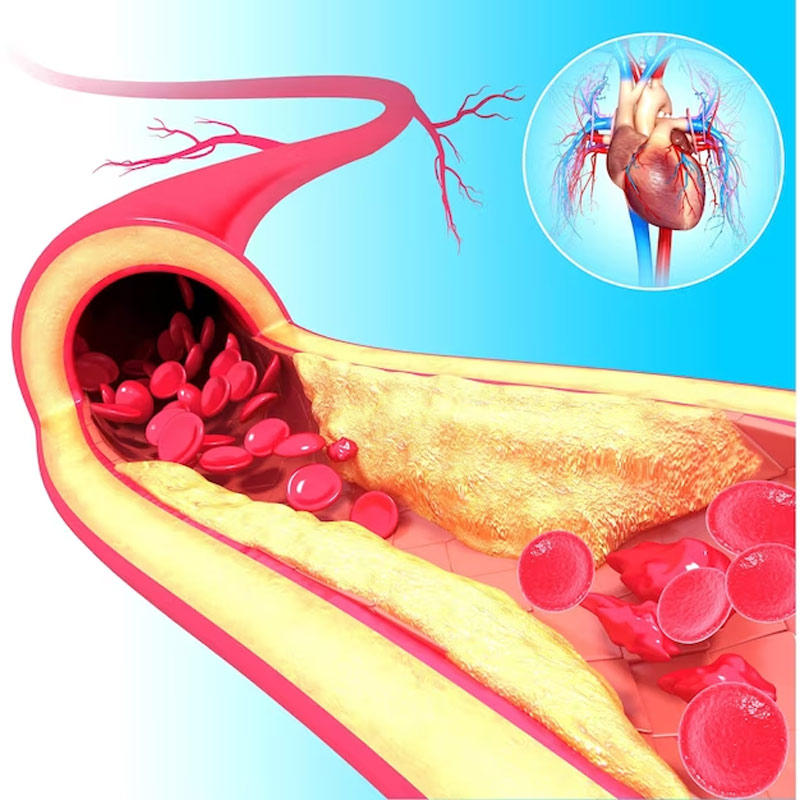
Cholesterol is an important substance found throughout our body, playing a crucial role in the formation of cell membranes, hormones, and vitamin D. While cholesterol is crucial for various bodily functions, an excess of certain types, particularly Low-Density Lipoprotein (LDL), can be harmful. Elevated levels of LDL cholesterol can negatively impact the heart, increasing the risk of heart disease.
Table of Content:-
While foods rich in saturated fats, trans fats, and excessive sugar can increase cholesterol levels in the body, certain healthy foods, such as fish, can reduce the risk and help in managing heart health. In an interaction with the OnlyMyHealth team, Edwina Raj, Head of Services - Clinical Nutrition and Dietetics, Aster CMI Hospital, Bengaluru, sheds light on the same.
Also Read: Are You Taking Statins For Cholesterol Management? Here Are Mistakes You Should Avoid
Role Of Diet In Cholesterol Management

Dietary practices are key to managing elevated cholesterol levels, says Raj, adding that adopting a meal plan with the optimum amount of fruits, vegetables, whole grains, pulses, and lean meat is vital for decreasing cholesterol levels and decreasing the risk of heart disease.
According to a 2021 systematic review and meta-analysis published in Nutrition, Metabolism, and Cardiovascular Diseases, researchers, after analysing numerous studies, found that foods rich in unsaturated fats, plant sterols, and soluble fibre significantly lowered LDL cholesterol. On the contrary, coffee increased LDL cholesterol, while soy protein, tomatoes, flaxseeds, almonds, avocados, and turmeric showed moderate to large reductions.
Should People With High Cholesterol Eat More Fish?

Raj suggests that including fish in one’s diet can help lower cholesterol levels in the body and minimise the risk of various health conditions.
Medical News Today recommends having fish and seafood rich in omega-3 fatty acids, which, according to the Office of Dietary Supplements (ODS) of the National Institutes of Health (NIH), can lower the risk of Cardiovascular Diseases (CVDs).
"Apart from reducing cholesterol levels, fish is also a rich source of protein and other vital nutrients, making it a wholesome option for those aiming to enhance their general well-being," Dr Raj shares.
She recommends including seafood twice a week in one's diet, which can help individuals with high cholesterol enhance their heart health and minimise the likelihood of experiencing complications linked to elevated cholesterol levels.
What Type Of Fish Is Good For The Heart?
“Consuming fatty fish like salmon, mackerel, and sardines is recommended for individuals with high cholesterol,” says Raj, highlighting their abundance in omega-3 fatty acids, which are proven to reduce triglyceride levels and increase High Density Lipoprotein (HDL) (good) cholesterol levels.
Furthermore, fatty fish serve as an excellent protein and essential nutrient source. It is crucial to prepare these fish in a healthy manner, such as by grilling or baking, to fully capitalise on their benefits and steer clear of unhealthy fats, she notes.
Also Read: Seafood Benefits: 8 Reasons Why You Must Add Fish In Your Diet
How To Manage Cholesterol

In general, besides diet, there are many other ways to manage and lower cholesterol levels. These include:
- Engaging in regular physical activity, such as aerobic exercises and strength training,
- Maintaining a healthy weight by limiting unhealthy foods and a sedentary lifestyle
- Taking cholesterol-lowering medications prescribed by a healthcare professional
- Consulting with a doctor to determine the most suitable approach for managing cholesterol levels based on individual health conditions and needs.
[Disclaimer: This article contains information provided by an expert and is for informational purposes only. Hence, we advise you to consult your doctor if you are dealing with any health issues to avoid complications.]
Also watch this video
How we keep this article up to date:
We work with experts and keep a close eye on the latest in health and wellness. Whenever there is a new research or helpful information, we update our articles with accurate and useful advice.
Current Version